Understanding acne scars
Understanding acne scars
They are one of the most dreaded consequences for acne sufferers. We’re talking about acne scars. So what’s the cause? Is scarring inevitable, or can you try to prevent it? Is it possible to get rid of scarring? Let's take a closer look.
Where does scarring come from?
If you or someone you know has suffered from acne, you know that unsightly scars can sometimes appear and stay put. But what causes them? Acne scarring occurs when a wound does not heal properly. In fact, most often the risk of scarring depends on the severity of the acne. In clear terms, the more severe the acne, the more likely it is to leave scars. But this is not always the case, as acne is different for each person. Scarring also depends on how acne is managed and how you treat your spots on a daily basis (essentially, whether you pick at them or not).
Everything you need to know about what’s happening underneath spots
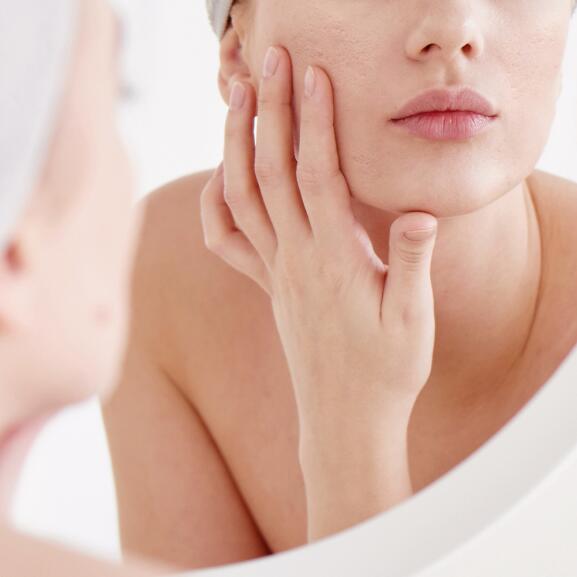
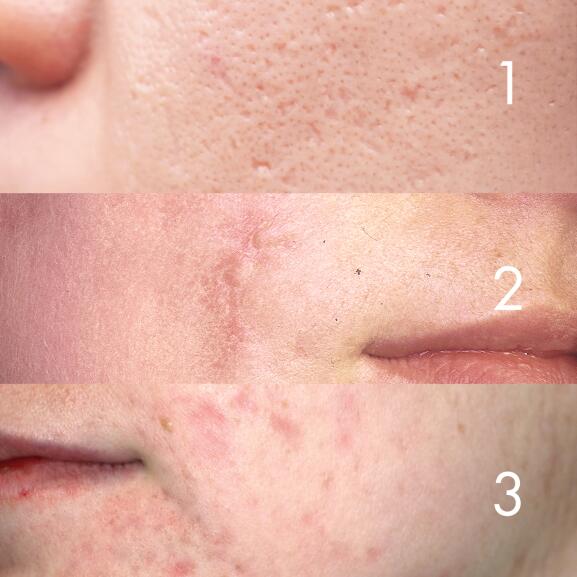
Acne scars come in all kinds
Scars are the most dreaded complications when it comes to acne. And there are all kinds of scars. Initially, scars may be red or pigmented, and may fade over time. But if the inflammation is widespread and deep, it can leave indelible marks.
- These are called atrophic scars. They appear as small craters that don’t smooth out. They can be wide and shallow. Or deeper and narrower. The latter are known as "ice pick scars";
- In contrast, hypertrophic and keloid scars are raised scars that result from fibrous changes in the skin;
- Pigmented lesions arise from inflammatory lesions. In short, they are permanent marks that are difficult to live with.
I was always embarrassed by my acne and the scars my pimples left behind, but fortunately a great dermatologist helped me get rid of them and forget about this difficult time!
Laura, 22 years
A heavy psychological impact
Even today, acne and the scarring it causes have a significant psychological impact. And it’s easy to understand why. Firstly, they mainly affect the face, so they change the image we see in the mirror. And this can happen at key moments in life (such as in adolescence, or for young women), undermining self-confidence. What’s more, 25% of adults are affected by acne, which is linked to puberty in the collective unconscious. Fortunately, there are solutions available to help you manage the situation.
The psychological impacts of acne
Scars are not a given
Rest assured, scars are not a given when it comes to acne. However, the more severe the inflammation and the longer inflammation lasts, the greater the risk of scarring. The important thing, as you have understood, is to limit this inflammation. You should focus on prevention, which is your best bet against this problem. The first step is to follow a gentle, appropriate daily hygiene and skin care routine. Your dermatologist can then suggest appropriate anti-acne treatment if necessary. It cannot be repeated often enough: these are the only ways to avoid scars.
Our tips for caring for acne-prone skin
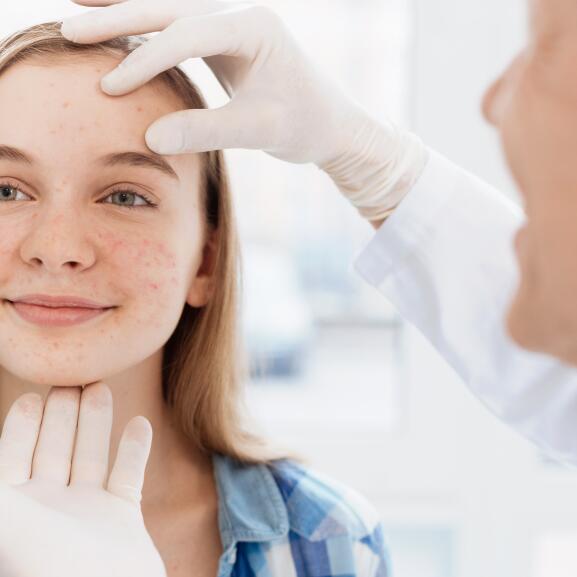
FRIENDLY (AND EXPERT) ADVICE
Do you know about dermatillomania? It's the obsessive urge to pick at your skin and break through your blackheads. But for the sake of your skin, you must resist! Dermatologists keep telling us: no matter how tempting it may seem, don't touch your spots. You'll damage your skin and could aggravate skin inflammation, increasing the risk of scarring. It's easier said than done, but it's essential to be aware of the problem to keep your skin looking good afterwards. You’ll thank yourself for resisting!
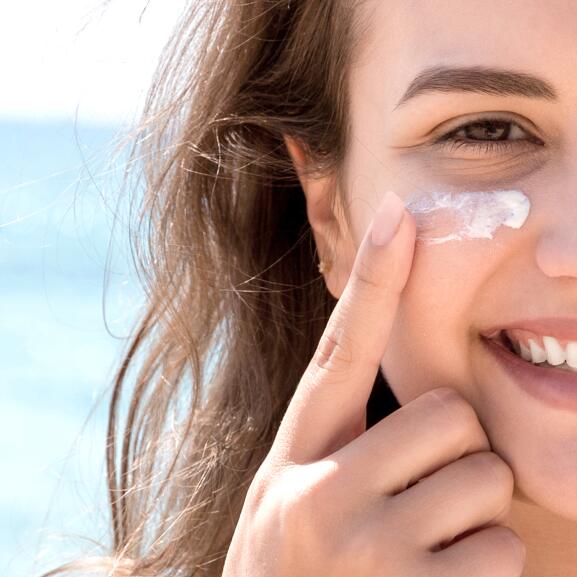
Avoid scarring: stop bad habits
Good hygiene requires you to do away with bad habits. As you can see, the first item on the list is to stop touching your spots. More generally, you shouldn’t touch your skin too much with your fingers, which are not always very clean. But there are other factors that can increase the risk of acne, and with it, scarring. All year round (not just in the summer), if you can’t avoid exposing your skin to the sun's rays, protect it with a non-comedogenic sun fluid or spray.
Different treatments for different scars
There’s no magic cure for acne scars. But it is possible to reduce the marks left behind. Your dermatologist can suggest targeted dermatological procedures such as laser treatment or peeling. Please note that these treatments often offer partial results. While the appearance of the skin is improved, the acne scar won’t disappear completely. This can sometimes be disappointing for patients. The focus should therefore really be on prevention.
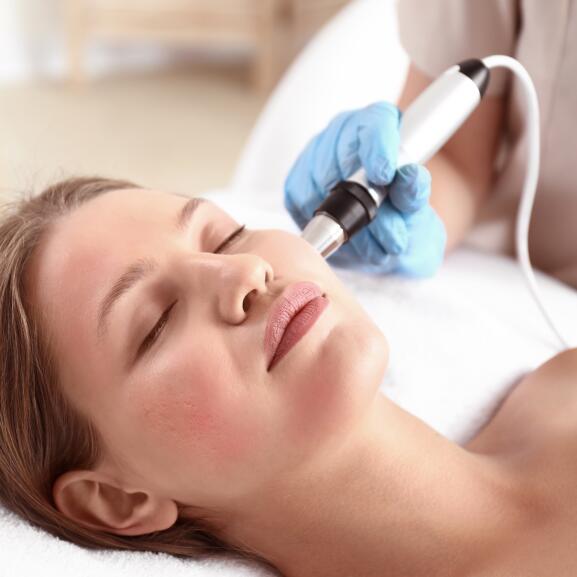
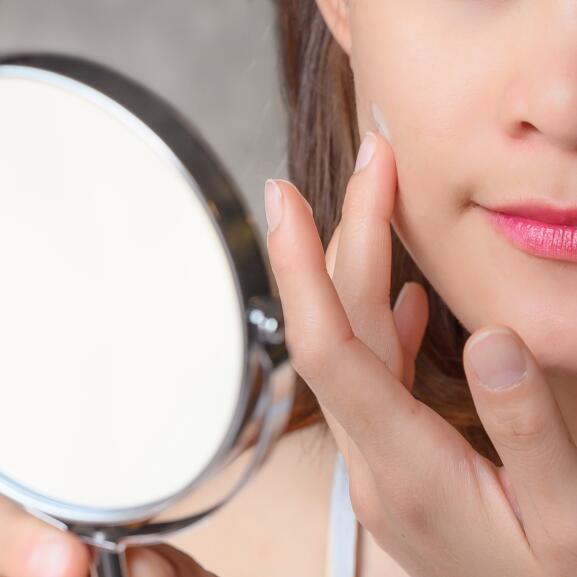
Avoid scarring: the art of camouflage
If your discomfort is significant, make-up for scars or blemishes can be a good way to regain confidence. You’ll need to ask yourself the right questions to find the right product. Is your imperfection related to colour or texture? Can this "camouflaging" be discreet or invisible (for a man, for example)? Can camouflaging be integrated into your daily routine to make it easier?
Our answers to your questions
To sort the true from the false: that's what we're here for.
In severe forms, acne can also affect the upper parts of the body, such as the back, shoulders, neck and décolleté. And the consequences in terms of scars are the same as for the face.
If you're a parent, don't downplay your teenager's acne. Untreated severe acne can lead to irreversible scarring, which can become a lifelong concern. Not to mention the impact on your teenager’s image and self-confidence, at an age when they are building this up and pressure from the outside is strong. Addressing the problem as soon as it arises will help your child feel better about themselves today, and in the future.
Again, when acne is present, it's best to consult a dermatologist without delay. Prompt treatment is best to avoid marks and scars as much as possible. The longer you wait, the worse the blemishes are likely to get and the less effective the treatment is likely to be.
Our solutions to reduce scarring
Our Cleanance products are designed to help you feel more comfortable in your skin
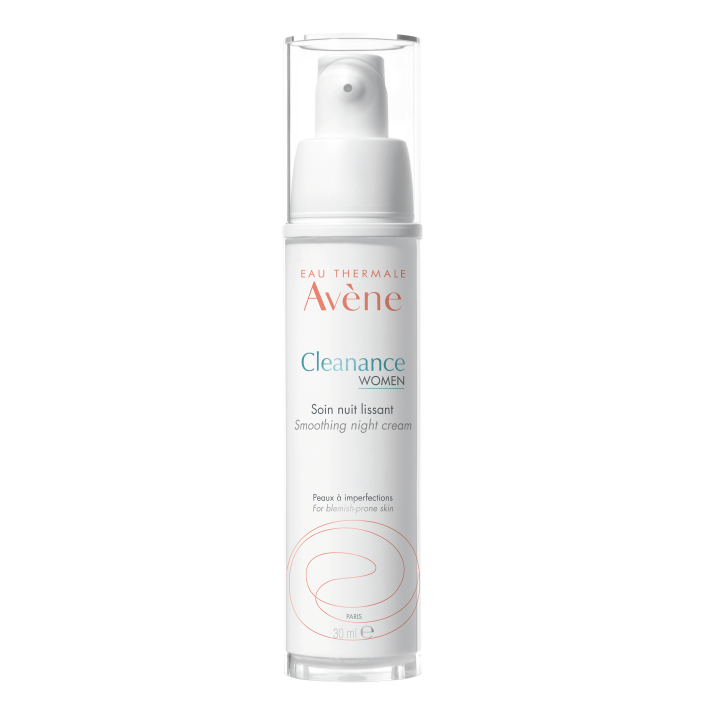
CLEANANCE WOMEN SMOOTHING NIGHT CREAM
For over 30 years, the Cleanance range has offered expert solutions with clinically proven effectiveness recommended by dermatologists to reduce residual marks and smooth skin texture.
MORE
NEWSLETTER
We’re always here for your skin!
All our tips for taking care of your skin day to day.
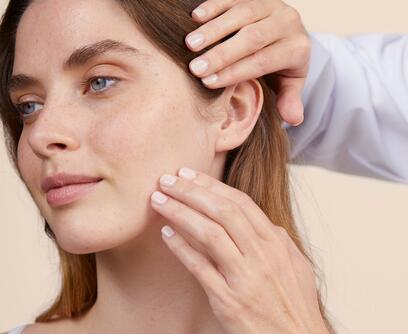
Which skin care routine should you adopt?
Identify what it really needs with the help of our experts and discover the most suitable skin care routine for you.
